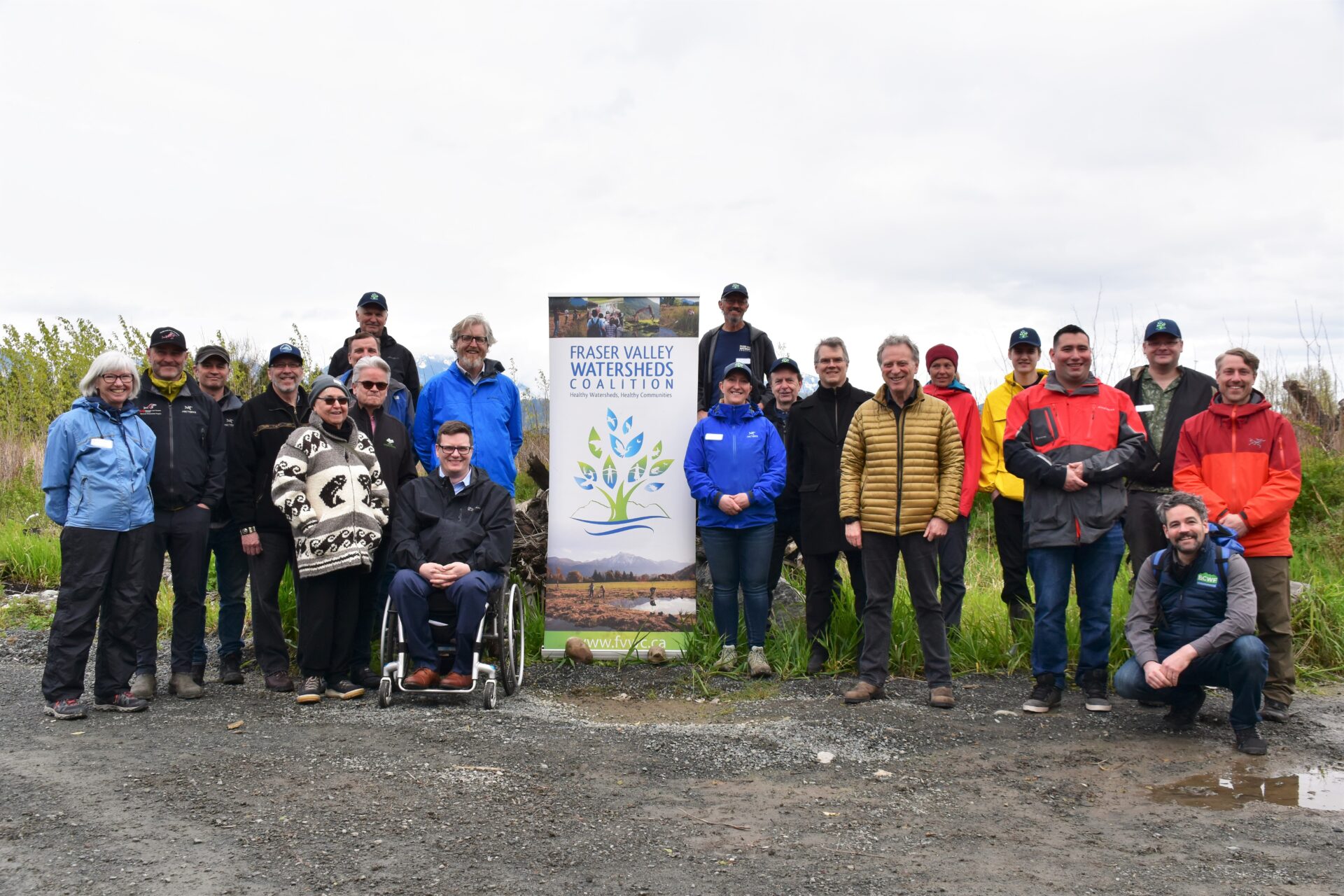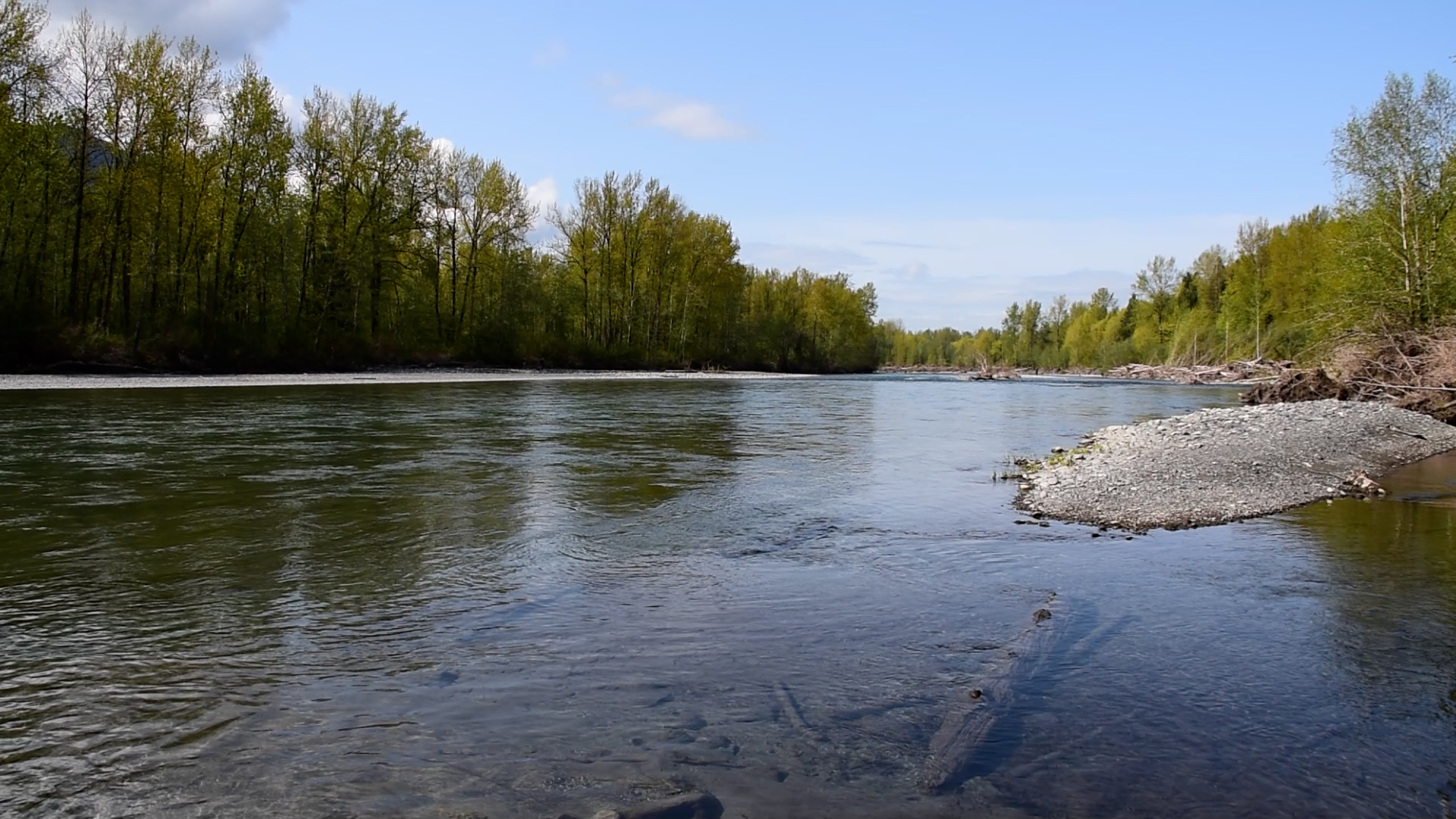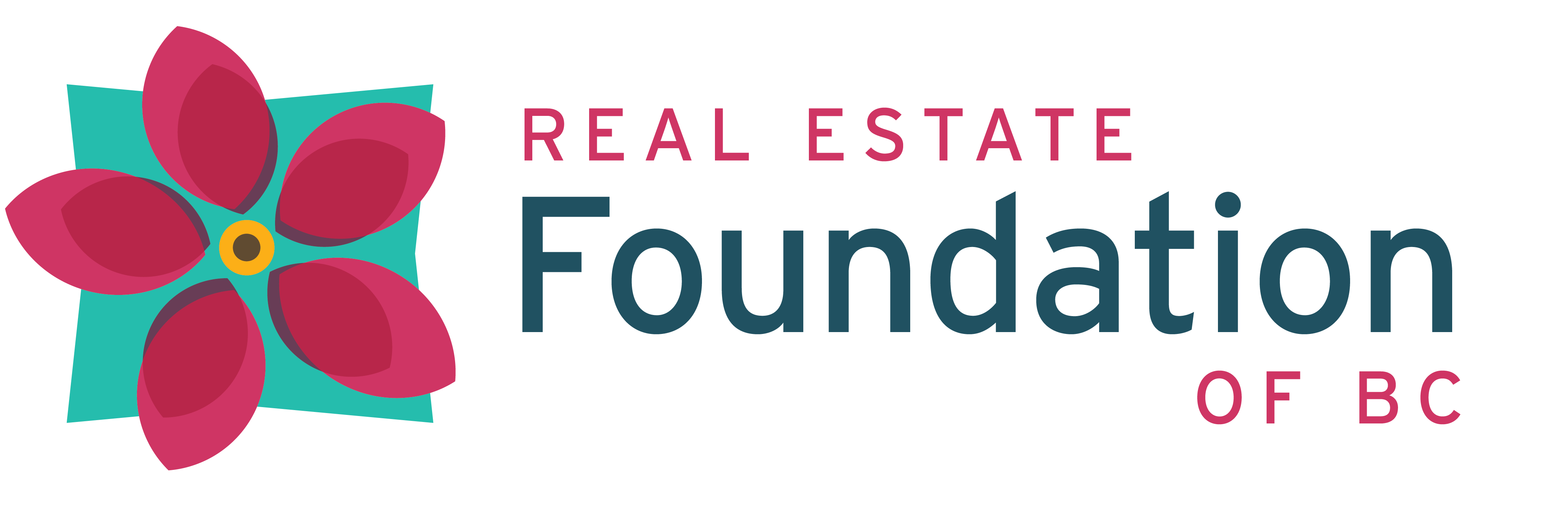Nature Based Climate Solutions: Investing in our Watersheds and the Future
“Water belongs to everyone. We need to respect it. We need to honour it. We need to allow it to be free to do the work that it needs to do.”
Mavis Underwood, Member of Tsawout First Nation | Governor, Real Estate Foundation of BC | Chair, Indigenous Leaders Advisory Circle
There is much to take in as you walk the Vedder Rotary Trail in Chilliwack BC within S’ólh Téméxw, the unceded lands of the Stó:lō Nation, and specifically in the immediate core area of the Ts’elxwéyeqw Tribe. The Vedder River roars along the Southern side of the trail. Great blue herons fly amongst the Cottonwood trees. Anglers dot the expanse of the river, hoping to snag a spring salmon.
As you continue to walk west, down the trail towards the Great Blue Heron Reserve, you wouldn’t think twice about the creek that flows under the trail through a culvert and into the trees and shrubs on the other side. The creek is unassuming, and the trees that were carefully planted several years ago look as if they have always been there.
From 2017 to 2020, the Fraser Valley Watersheds Coalition (FVWC) has worked on the Peach Creek and Hooge Wetland Restoration Project. The vision for the project was to safely rewater the Vedder River floodplain to support, restore, and enhance salmon and aquatic fish habitat and biodiversity within the Vedder River floodplain.
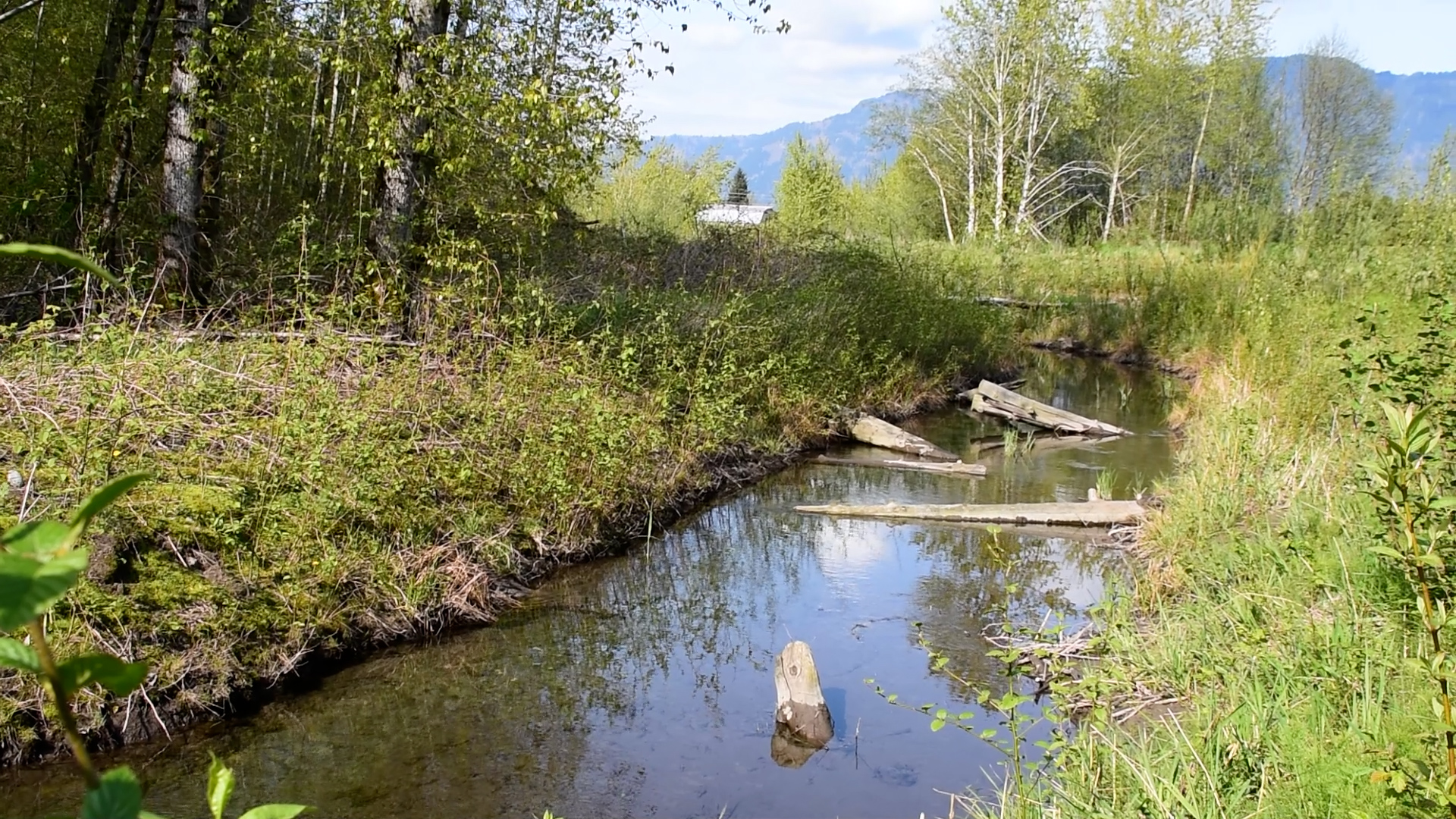
During the fall of 2021, when atmospheric rivers poured down on the Fraser Valley, this creek and wetland demonstrated the full value of nature-based climate solutions. Rearing salmon were able to use the off-channel habitats of Peach Creek to escape the high-flow velocities of the Vedder River. This provided space for adult salmon to spawn, supporting the sustainment of salmon populations. In addition, the Hooge Wetlands soaked up excess stormwater, mitigating the flooding that impacted much of the Fraser Valley.
Funding provided through the Healthy Watersheds Initiative to the B.C. Wildlife Federation’s Wetlands Workforce project allowed the FVWC to undertake maintenance work on these sites during the summer of 2021.
“We called it the “Great Tune-up”, Natashia Cox, Program Director for the FVWC explained to participants touring the wetland site on April 21, 2022. "It gave us the resources and ability to hire a staff team to do a tune- up and care for these natural assets.”
Natashia highlighted that this work helped to support the functionality of the wetland and creek when the river’s flow increased in the fall.
Matt Foy, Chair for the FVWC spoke to the group about how the funding provided much more than just a dollar value for the team. He said, “during the pandemic, our little group and the people that work for this group doing the work, the world seemed to be ending. It’s very easy to forget how people felt […] no one knew how it was going to play out and that money was not just a dollar, it was important for moral and comfort to know this work could continue.”
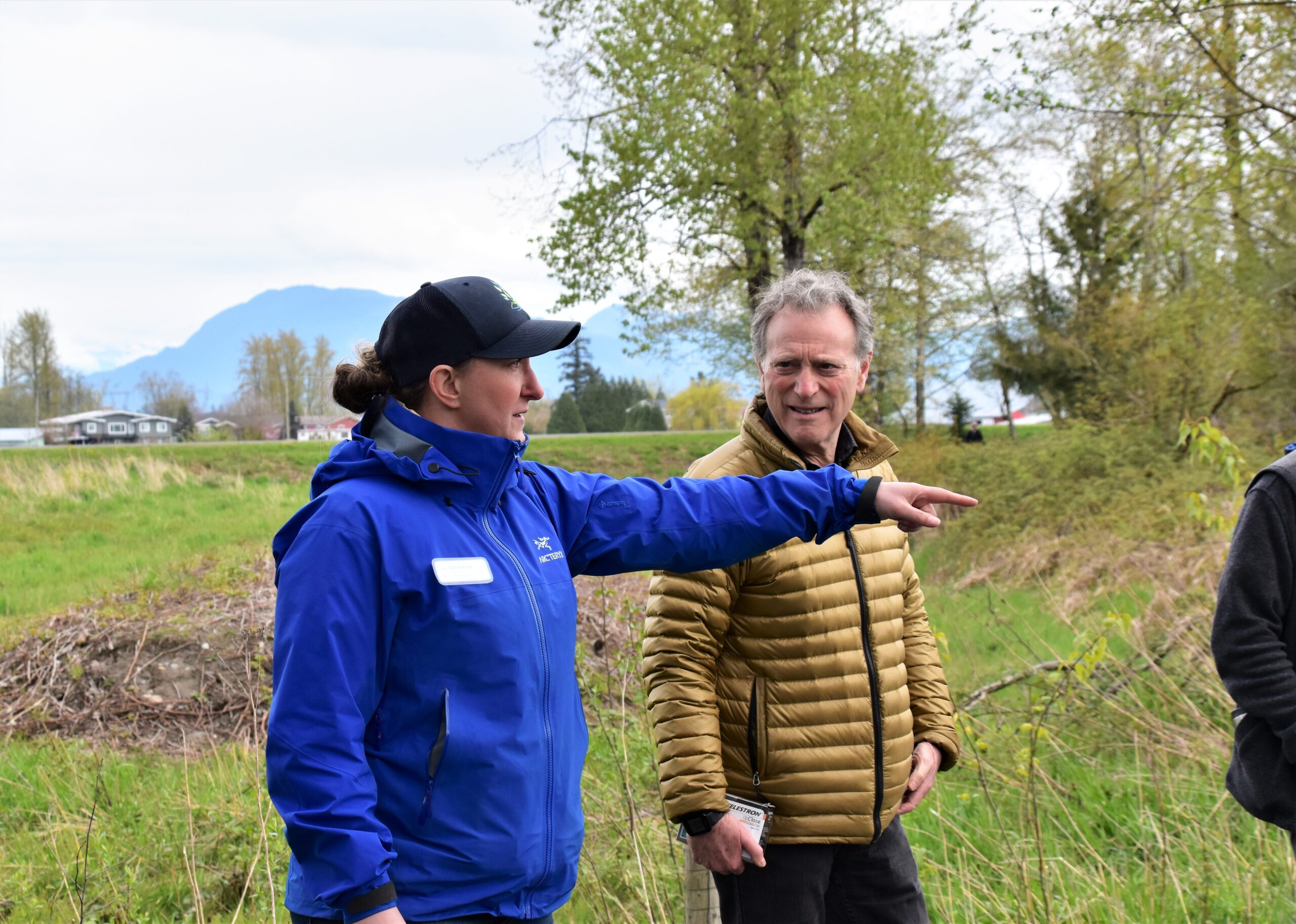
Participants at the tour to celebrate Hooge Wetland and Peach Creek included Chris Silver, Councillor for Semá:th First Nation, Hon. George Heyman, Minister for Environment and Climate Change Strategy, Parliamentary Secretary for Fisheries and Aquaculture Fin Donnelly, MLA for Chilliwack Dan Coulter and Chilliwack Mayor Ken Popove. Several other representatives from the Province, City of Chilliwack, Healthy Watersheds Initiative, Fraser Valley Watersheds Coalition, and B.C. Wildlife Federation were in attendance to celebrate this project.
Chris Silver, Councillor for Semá:th First Nation, opened the tour by sharing the history of the territory and the importance of watersheds and wetlands to his community with the participants.
“Sto:lo in our language means the “river of all rivers”, which we call the Fraser River to this day,” he said “Our watersheds are important to us as Halq’emé ylem People, not as First Nations people, but as people in general, because if the salmon weren’t running through here for the thousands of years, our ancestors’ lives would look different, this landscape that we are standing on would look different. The rivers that are around us would look different.”
The Healthy Watersheds Initiative has supported 61 projects at over 200 sites across the province. The projects, funded through a $27 million investment from StrongerBC, the Province’s $10 billion COVID-19 economic recovery plan, employed COVID-19 impacted workers from non-profit, Indigenous, local government and organizations to restore, maintain and monitor wetlands and watersheds. Hooge Wetland/Peach Creek was just one site of hundreds that received support from the funding. Minister Heyman reflected on the importance of taking these opportunities to support people, communities and watersheds.
“When we have an opportunity to build a healthier habitat for all of us, for humans, for wildlife, for fish; when we have an opportunity to learn from Indigenous cultures, knowledge, and history about how to care for the land that cares for us; when we have a chance to put eager young people, and some not so young, to work repairing and restoring and building up and creating the kind of natural environment that can sustain us for generations into the future - that is an opportunity not to be missed.”
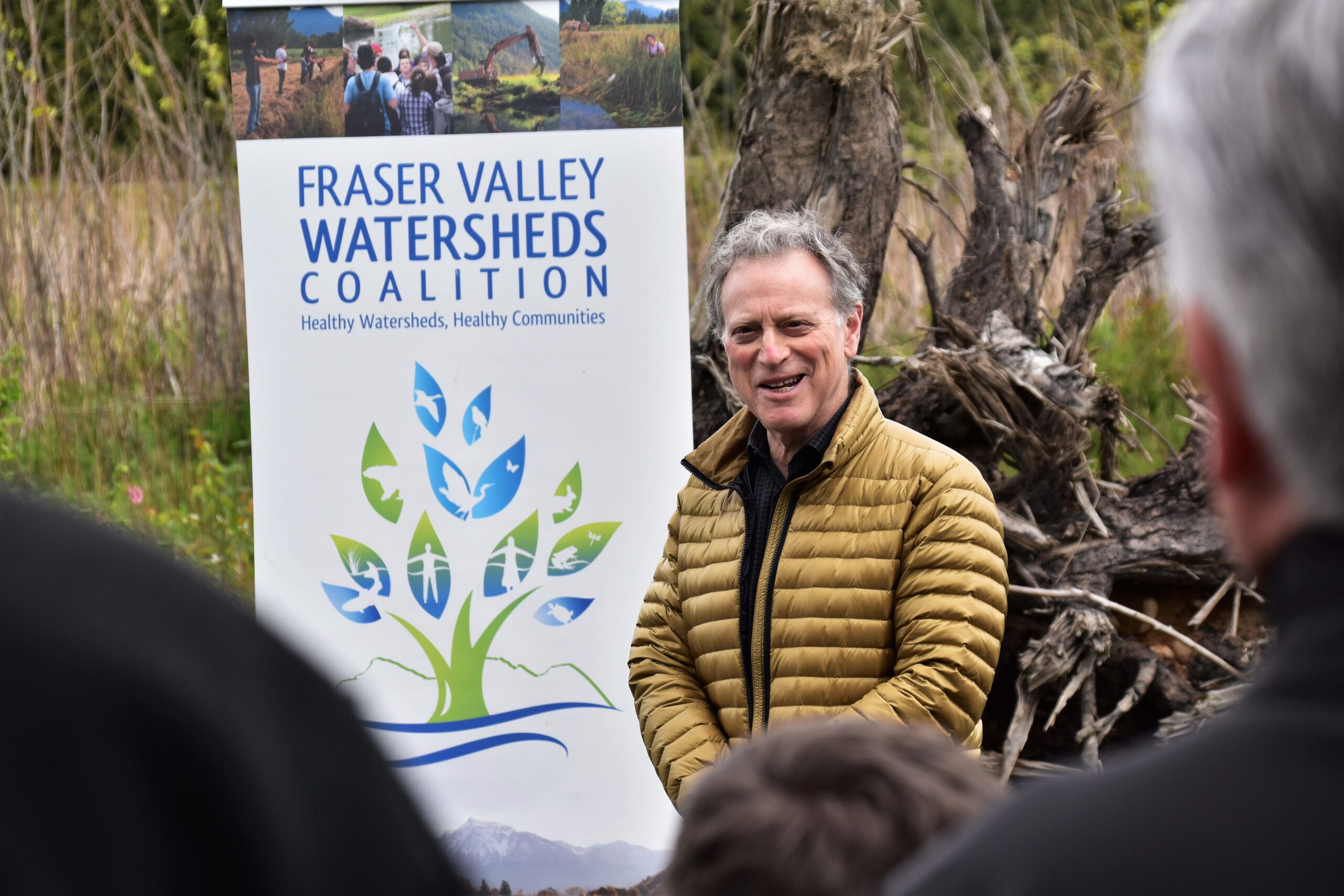
Minister Heyman echoed an announcement made earlier in the day by Premier John Horgan that another $30 million is being invested to support watershed projects across the province and continue the project work that was started through the Healthy Watersheds Initiative.
“I think we all know that no matter how much we do to mitigate greenhouse gas emissions and climate change, we are going to be dealing with the impacts. We have to prepare. We have to adapt,” said Minister Heyman.
Many who were part of the tour echoed the importance of restoring watersheds in the face of climate change, including MLA Dan Coulter.
“Restoring our watersheds is so important to mitigate climate change and to make sure that we have fish for generations to come,” he said.
The Hooge Wetland and Peach Creek Project is just one example of the positive impacts of investing in our watersheds and the people who strive to restore and protect these spaces.
